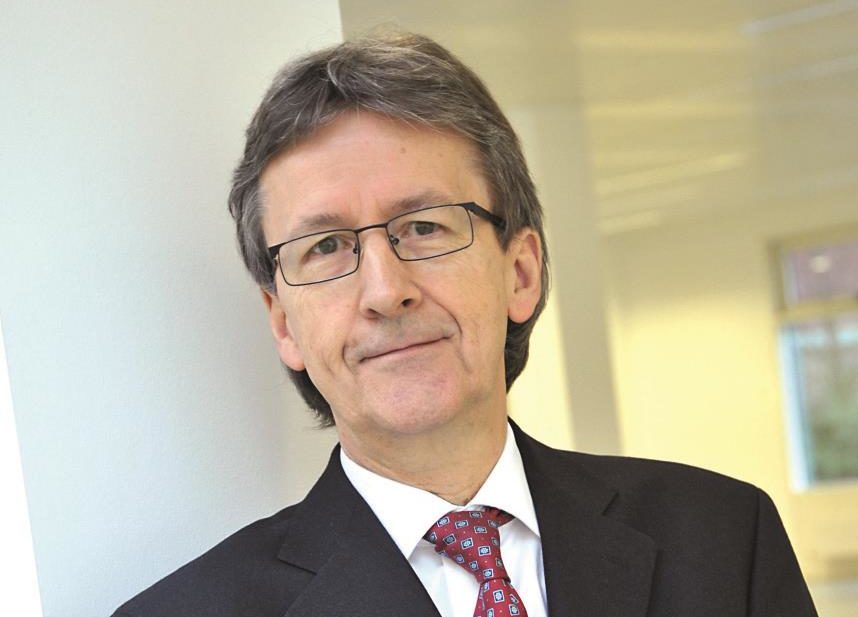
Royal Pharmaceutical Society
The RPS Scottish Pharmacy Board launched its manifesto in January 2016 and has spent the last year lobbying the Scottish government to try and make it’s manifesto recommendations a reality. Alex MacKinnon, director for RPS Scotland, reflects on the past year and highlights RPS Scotland’s key priorities for 2017.
What progress has been made since the launch of the RPS Scottish Pharmacy Board manifesto in 2016?
The manifesto triggered a period of intense advocacy — party conferences, engaging with members of the Scottish Parliament individually, and pharmacy visits. Political advocacy is one of the most important things that we do as a professional body.
After launching our manifesto, we focused more on interprofessional working. RPS Scotland got involved with a piece of partnership work led by the Royal College of Nursing. We produced a set of basic principles around primary care — it was powerful because it involved 18 health professions speaking with one voice to government saying “pay attention, this is what we need for patients”.
That same group also worked on a piece led by the RPS to input into the government’s digital strategy consultation.
We expect the refresh of Prescription for Excellence to be relaunched imminently
Are you pleased with the Scottish government’s pharmacy commitments for 2016/2017?
We would always want them to do more, but we’ve got funding for pharmacists working in GP surgeries and we’ve worked closely with the Royal College of GPs to prepare a joint positioning statement on how we would like pharmacists in GP surgeries to be utilised.
Since 2013, we’ve had Prescription for Excellence — the government’s vision to improve pharmaceutical care in the community. Since Rose Marie Parr, chief pharmaceutical officer at the Scottish government, took over in 2015, a refresh is being worked on and we expect it to be relaunched imminently.
What further work needs to be put into action?
One of the core services of the community pharmacy contract in Scotland is the minor ailment service (MAS), which allows a pharmacist to prescribe for common clinical conditions, give advice or refer to another healthcare professional. Currently, MAS is only available to people previously exempt from paying prescription charges. RPS Scotland is calling for the MAS to be extended further. Since the manifesto, the government has introduced a pilot in Inverclyde whereby all patients registered with a GP will be eligible for the MAS. Hopefully it will show some good results.
The manifesto is also asking for better sharing of information across the Scottish NHS. We’ve been lobbying for pharmacist access and input to the patient record; I’ve been lobbying for it for the best part of 18 years! Pharmacists have kept electronic records of dispensed medicines safe since the early 1970s. We now have pharmacists as prescribers but we can’t access the part of the record that allows us to see drug interactions, medicines prescribed and side effects. This needs to change.
We’re still pushing for protected learning time for pharmacists. Pharmacists will play an increasingly important role: a clinical role, a prescribing role, a public health practitioner role, and it’s vitally important that we are able to keep up to date with further education and development.
What challenges do you envisage in 2017?
Going forward, we will need to challenge the government to resource our profession better. It’s all very well having aspirations as to how pharmacy should develop but new resources will have to come our way. So far, government has been supportive of the further development and utilisation of the skills of pharmacists and GPs have just had a negotiation on their contract so hopefully it will all start to gel a bit more.
I see 2017 as having more opportunities than challenges. We’re starting to work more with other health professions. This is really important in order to create new opportunities for pharmacists and we will need to be resilient and have a flexible workforce for the future. We’ve worked hand in hand with NHS Education for Scotland to do joint conferences and projects to align the profession to all work together towards the same goal — improving the health of the public.
Care in the NHS is still fragmented — this needs to be resolved
What do you hope to have achieved by the end of 2017?
Care in the NHS is still fragmented — this needs to be resolved. My biggest aspiration for 2017 is to make sure that politicians and the NHS support the positioning of pharmacists wherever there are medicines issues to be resolved. Access to medicines information supports that vision. We need much better electronic sharing of information across health and social care so that health professionals can access the patient record to allow them to make the best informed, social care and clinical decisions for that patient.
RPS Scotland has also been supporting the development of pharmacy practice — with key partners we developed a quality roadshow around error reporting, quality and safety that will be delivered until May 2017 to further raise the bar on medicines safety.
From a British perspective, the Medicine’s Act rebalancing work around supervision will be vitally important as any changes must deliver the flexibility we need to enable new ways of working while maintaining the professional autonomy and role of pharmacists.
It’s really important that we promote science. We’re moving towards new clinical roles but our generalist skills come from our science training. We need to get much better at getting evidence around pharmacists’ effectiveness in the NHS — we do a lot of wonderful things for patients but we need to get better at substantiating this.
Since conducting this interview, Alex MacKinnon was appointed interim chief executive of the Royal Pharmaceutical Society. Aileen Bryson, practice and policy lead for Scotland, is now in the position of director for Scotland during this time.
You may also be interested in
Long service of members

Membership fees 2022
